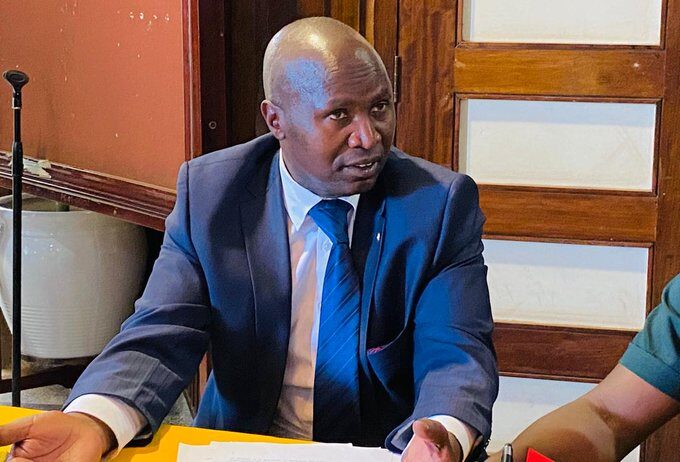Theodore Ssekikubo, the seasoned Member of Parliament (MP) for Lwemiyaga County in Uganda, is set to contest the upcoming elections as an independent candidate after losing the National Resistance Movement (NRM) flag. This development marks a significant turning point in Ssekikubo’s political career and signals a heated contest in the Lwemiyaga constituency, where political tensions have been running high.
Ssekikubo has been a longstanding figure in Ugandan politics, having represented Lwemiyaga for several terms on the NRM ticket. However, his bid to reclaim the NRM nomination ahead of the 2026 elections was thwarted when retired Brigadier General Emmanuel Rwashande was declared the winner of the NRM primaries. Ssekikubo challenged Rwashande’s victory through the NRM Elections Disputes Tribunal, alleging grave irregularities in the party primary elections. His petition cited violence, voter intimidation, military interference—including an incident where a soldier allegedly shot one of his supporters—and a deliberate communication blackout on election day, which he attributed to vandalism of telecom infrastructure. Despite these serious allegations, the tribunal dismissed Ssekikubo’s petition, stating that the evidence presented did not meet the required standard to invalidate the results. The tribunal also noted a contradiction in Ssekikubo’s request to be declared the winner of an election he himself described as marred by “pervasive irregularities, illegalities, and violence”.
Ssekikubo’s loss and subsequent dismissal of his case by the tribunal have effectively ended his 25-year association with the NRM. In response, he has opted to break away from the party and run as an independent candidate. This decision underscores his determination to continue seeking the mandate of the people of Lwemiyaga despite the setback within his party. He has vowed to contest vigorously, emphasizing that the electoral battle is not just about party politics but about serving the interests of his constituency.
The political environment in Lwemiyaga has been particularly turbulent, with reports of violent clashes involving supporters of Ssekikubo and those backing Rwashande. The rivalry has spilled over into accusations of intimidation and political sabotage. Ssekikubo has publicly condemned the use of violence and has accused key figures, including Michael Nuwagira (known as Toyota, a brother to President Museveni), of campaigning against him in a manner that undermines democratic principles. He has also accused opponents of being motivated by personal interests, particularly in the context of Lwemiyaga’s valuable resources, such as uranium and prime agricultural land.
The decision to contest as an independent is a strategic move, as Ssekikubo leverages his deep-rooted popularity and decades of political experience to rally voter support beyond party lines. This development also reflects broader fractures within the NRM and the increasing challenges faced by incumbents in securing their party nominations. By stepping out as an independent, Ssekikubo is positioning himself as a candidate who can rise above party politics and focus on grassroots issues.
The move has drawn mixed reactions. Some political analysts see it as a bold statement of defiance against the entrenched party machinery, while others view it as a risky gamble given the formidable resources and influence wielded by the NRM. Nonetheless, Ssekikubo’s campaign is likely to energize a significant section of voters who feel disillusioned by internal party disputes and yearn for representation that prioritizes constituency needs over party loyalties.
In conclusion, Theodore Ssekikubo’s decision to run as an independent candidate after losing the NRM flag is setting the stage for a highly competitive and possibly contentious election in Lwemiyaga County. With allegations of political violence, party infighting, and resource-based interests at play, the electoral contest will be closely watched as a barometer of political dynamics in Uganda ahead of the 2026 general elections. Ssekikubo’s campaign will test the strength of his personal political brand against the institutional might of the ruling party and its endorsed candidate.

